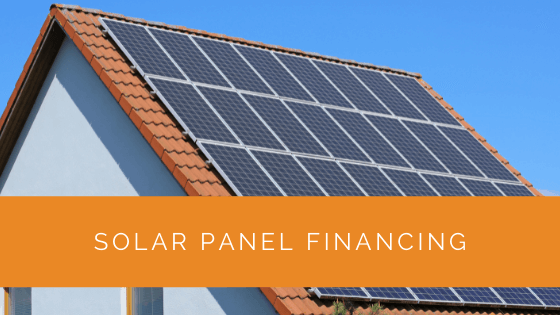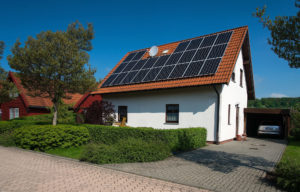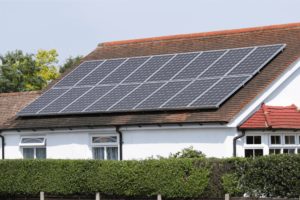Solar power is a renewable and clean energy source used for various applications. With solar panel financing, prospective homeowners can apply for financial assistance to help pay for solar panel purchase and installation.
Continue reading the many solar financing choices available and find out which option would best fit you.
Contents
- 1 Key Takeaways
- 2 What Determines the Best Solar Panel Financing Option for You?
- 3 How Does Solar Financing Work?
- 4 Case Study: Navigating Solar Panel Financing for Maximum Benefits
- 5 Expert Insights From Our Solar Panel Installers About Solar Panel Financing
- 6 Discover the Power of Solar with Solar Panels Network
- 7 Conclusion
Key Takeaways
- Solar panel financing options are available to help prospective solar panel owners with the purchase and installation costs.
- Cash payments, solar loans, and leasing are the three main financing options. Each option has its advantages and is suitable for different types of owners.
- Consider budget constraints, tax credits, and long-term savings when choosing the best solar panel financing option.
What Determines the Best Solar Panel Financing Option for You?
The price of solar panels fluctuates quite often, so it is important to find the best financing option for your needs. You may have to consider many factors when deciding on the best solar panel financing option.
Some of them are listed below:
- Evaluate the installation cost as per your energy use. For example, reduced energy use enables owners to install a smaller, more affordable solar panel.
- Analyse your budgetary constraints.
- Evaluate the total cost savings of using solar energy in the long run.
- Research well for tax credits, whether for commercial or residential purposes.
- Evaluate the post-installation maintenance.

How Does Solar Financing Work?
Now that you have found your ideal solar company and selected a few solar panels, it’s time to look into different financing options.
Owners are looking to switch to solar power, but they often find themselves at a loss as the initial cost of a solar panel is quite high. Solar panels are a great way to save on energy bills, but financing them can be hard.
Here are three excellent solar financing options for you to consider:
Financing Through Cash
Cash payments for solar panels can help you to maximise your long-term savings.
It may shock you, but consider the potential return – by acquiring a whole household solar system, you are effectively prepaying for around 25 years of electricity.
Cash purchases offer a variety of advantages, including protection from rising utility costs, inflation, and interest, which can save you tons of money in the long term.
However, it is well known that the initial cost of solar equipment is typically rather high, so the disadvantage of paying cash is upfront. Paying in full might be a concern for homeowners.
Who May Opt for It?
- Owners who want maximum savings
- Owners have sufficient funds to pay for their solar units in full
Financing through Loans
For solar panel owners who cannot pay this amount upfront, solar loans enable you to borrow money from a lender to finance your installation. You may repay over time with energy savings.
The most prevalent types of solar loans are:
- Unsecured personal loans
- Home equity loans or lines of credit
- In-house financing
The essential benefit of a solar loan is that it gives borrowers greater budget freedom while still providing the benefits of system ownership. If you go the loan route for solar financing, pay close attention to the annual percentage rate (APR), down payment amount and other loan payment conditions.
Interest rates and fees will be a major driver for your solar payback period and the total cost of your system. Access to low-interest financing options could save you a lot of money.
Don’t forget to do a thorough study on this as well.
Who May Opt for It?
- Owners who lack the financial means to purchase a solar panel system yet want the benefits it offers
- Owners who wish to take advantage of all available discounts and tax benefits

Financing through Lease
You can also lease solar panels or sign a power purchase agreement (PPA) to buy the electricity generated by solar panels.
While leasing, the solar company retains ownership of the panels.
The only significant difference between solar leases and PPAs is:
- A solar lease requires fixed monthly payments to use solar panels and other solar equipment
- A PPA only requires monthly payments for the power generated by the panels.
While the convenience of a solar lease may appear appealing initially, note that without system ownership, you will be ineligible for a solar tax credit.
Who May Opt for It?
- Owners that are opposed to system upkeep
- Credit-challenged owners
- Owners ineligible for a tax credit
- Owners who are more concerned with environmental stewardship than with cost savings
There are numerous reasons why a shoe company or almond farmer would invest in a solar panel system.
An expanding small business owner may install a few low-cost solar panels to reduce overhead costs and increase revenue.
A large corporation’s board of directors may leverage its vast solar array as a marketing tool, demonstrating its dedication to sustainable energy.
Whatever the cause, there are various factors to consider when selecting a solar panel system for business use. So, every possible factor should be equally reviewed, researched, analysed, and evaluated.
Background
A mid-sized family in Leeds recently explored options to reduce their electricity bills and contribute to a more sustainable future. Interested in installing a solar panel system, they faced the challenge of selecting the best financing method that suited their financial situation and long-term goals. The family needed guidance on whether to opt for a cash purchase, a solar loan, or a leasing arrangement.
Project Overview
The primary goal was to find a financing option that would minimise the upfront costs while maximising the long-term financial benefits and energy savings. The family wanted to ensure they made a decision that aligned with their budget and future energy consumption needs.
Implementation
- Initial Consultation and Assessment: We conducted a detailed assessment of the family’s energy consumption and financial situation. We discussed the benefits and drawbacks of each financing option, including cash payments, loans, and leases.
- Exploring Financing Options:
- Cash Purchase: Evaluated for its potential to offer the best return on investment, providing full ownership of the system and eligibility for tax incentives.
- Solar Loan: Considered for spreading the cost over time with manageable monthly payments, allowing the family to benefit from owning the system without the burden of upfront costs.
- Lease Agreement: Reviewed for its minimal upfront investment and maintenance-free benefits, though with the understanding that they wouldn’t own the system or qualify for certain tax credits.
- Decision-Making and Selection: After discussing the pros and cons, the family chose a solar loan due to its balance of affordability, ownership benefits, and access to government incentives. This choice also allowed them to take advantage of low-interest rates, making the overall cost more manageable.
- Installation and Follow-Up: We facilitated the installation process, ensuring that the loan terms were clear and beneficial. The family was provided with a detailed plan for loan repayment and energy savings projections.
Results
- Financial Savings: By choosing a solar loan, the family managed to reduce their monthly electricity costs significantly. The loan terms offered a low interest rate, making the investment affordable and the savings substantial over time.
- Increased Property Value: The addition of a solar panel system increased the property’s value, an added benefit recognised in the real estate market.
- Environmental Impact: The family’s shift to solar energy reduced their carbon footprint, aligning with their goal of contributing to a more sustainable environment.
Summary
This case study highlights the importance of carefully selecting a financing option when investing in solar panels. The family successfully navigated their options and chose a solar loan, balancing affordability with long-term benefits. This decision provided them with immediate energy savings, increased property value, and environmental advantages. Solar Panels Network’s expertise ensured the family made an informed choice, demonstrating our commitment to supporting clients in their renewable energy journeys.
Expert Insights From Our Solar Panel Installers About Solar Panel Financing
Choosing the right financing option for your solar panels can make a huge difference in your long-term savings. Cash purchases are ideal for those who can afford the upfront cost, offering the best return on investment and immediate savings on energy bills.
Financial Consultant in Renewable Energy
Solar loans are a fantastic option for homeowners who want to own their solar panels but need a little help covering the initial costs. It’s crucial to understand the terms, interest rates, and how they affect your overall savings before committing to a loan.
Solar Energy Specialist
For those who prefer minimal upfront costs and no maintenance worries, leasing solar panels or entering into a PPA can be appealing. However, keep in mind that you won’t own the system and might miss out on some financial incentives.
Solar Installation Manager
Discover the Power of Solar with Solar Panels Network
Are you navigating the world of solar installations? Look no further than Solar Panels Network, the UK’s trusted partner in harnessing the sun’s potential. Our dedication goes beyond just installations; we’re on a mission to transform how homeowners and businesses across the UK perceive and utilise energy. By choosing us, you’re reducing your carbon footprint and making a smart financial move that promises savings for years ahead. Contact us today and embark on your solar journey.
Conclusion
Solar energy plays a critical role in environmental conservation. It contributes to averting the threat of global warming, which is a concern. Installing a new solar panel system for your home or business contributes to the green energy movement.
Solar energy accounts for 2% of global electricity usage. The source has steadily increased throughout the years.
Without question, the growing popularity of solar power has resulted in the introduction of new financing options for prospective owners. However, weighing all the benefits and drawbacks of any financial investment you want to make is equally crucial.
About the Author
Solar Panels Network stands at the forefront of solar energy solutions, driven by a team of seasoned solar engineers and energy consultants. With over decades of experience in delivering high-quality solar installations and maintenance, we are committed to promoting sustainable energy through customer-centric, tailored solutions. Our articles reflect this commitment, crafted collaboratively by experts to provide accurate, up-to-date insights into solar technology, ensuring our readers are well-informed and empowered in their solar energy decisions.



